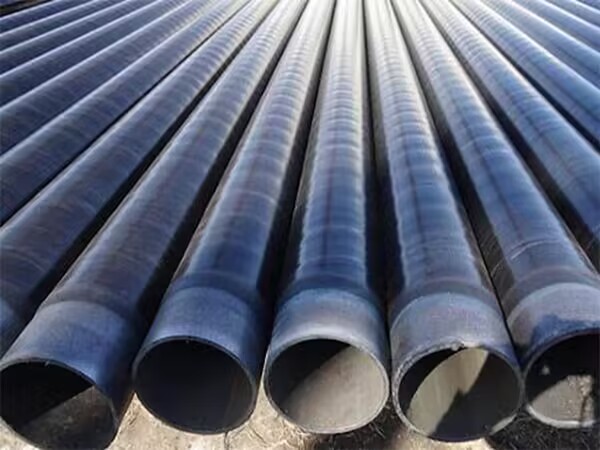Steel pipes, as widely used fundamental materials in industrial, civil engineering, and mechanical equipment, have anti-corrosion performance that directly impacts project quality, equipment service life, and operating costs. In humid or corrosive environments, untreated steel pipes are prone to corrosion, leading to a series of problems. Therefore, anti-corrosion treatment for steel pipes is a crucial aspect of construction projects and equipment maintenance.

The Hazards of Steel Pipe Corrosion
Steel pipes are commonly used in fields such as chemical processing, oil and gas transportation, and urban water supply. These applications often expose pipes to corrosive environments. Prolonged exposure to air, moisture, chemicals, or other corrosive substances causes steel pipes to rust or oxidize. This leads to reduced wall thickness, decreased strength, and, in severe cases, perforation.
The consequences can include production stoppages, disruptions to city water supply or heating systems, environmental pollution, and even catastrophic incidents such as fires, explosions, and structural collapses. Therefore, corrosion prevention is of paramount importance.
Common Pipe Anti-Corrosion Techniques
3PE Anti-Corrosion Coating:
Suitable for oil and gas pipelines, offering strong corrosion resistance and significantly extending service life.
Epoxy Powder Coating:
Used for potable water pipes, ensuring non-toxic and environmentally friendly protection.
Galvanization:
Applied for atmospheric corrosion resistance, such as for guardrails and drainage pipes.
Internal and External Coatings:
Provides comprehensive protection for both inner and outer pipe walls, suitable for complex environments.
Benefits of Anti-Corrosion Treatment
Enhanced Pipe Safety:
Corrosion weakens the load-bearing capacity of steel pipes, increasing the risk of leaks or ruptures under high pressure or temperature. Applying anti-corrosion materials prevents structural damage and safety incidents caused by corrosion.
Reduced Maintenance Costs:
Untreated steel pipes corrode quickly, requiring frequent repairs or replacements that escalate maintenance costs. Although anti-corrosion treatment involves a higher upfront investment, it significantly lowers long-term maintenance expenses and improves cost-effectiveness.
Improved Resource Utilization:
Steel is a non-renewable resource, and its waste or loss exacerbates resource consumption. Anti-corrosion treatment effectively prolongs the service life of steel pipes, improving resource utilization and aligning with green development principles.
Environmental Protection:
By extending the lifespan of steel pipes and reducing waste, anti-corrosion treatments contribute to sustainable practices and lower environmental impacts during production and use.
Conclusion
Anti-corrosion treatment for steel pipes is not just a method for material protection; it is also a critical measure to ensure project safety, extend equipment life, and reduce operational costs. With advancements in technology, anti-corrosion processes will become more efficient and environmentally friendly, providing strong support for various industries.
Read more: 3PE/3PP Coating pipes or Fusion bonded epoxy coating
